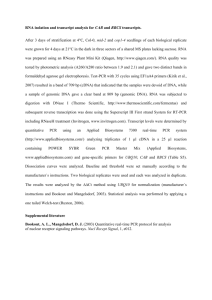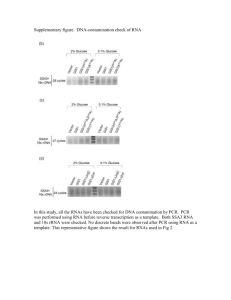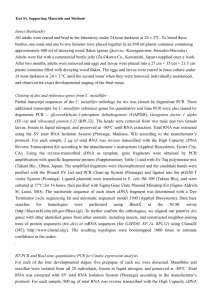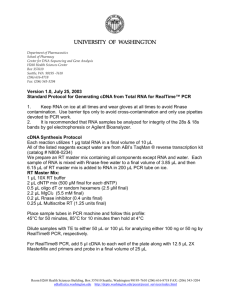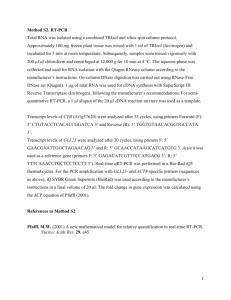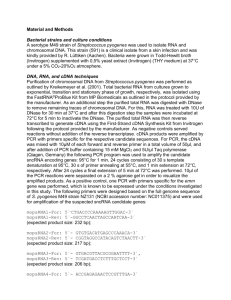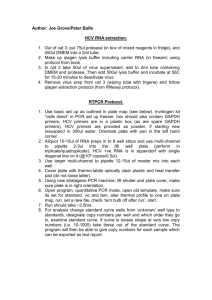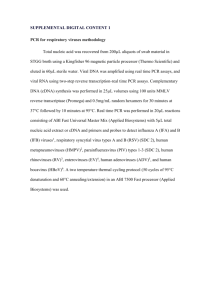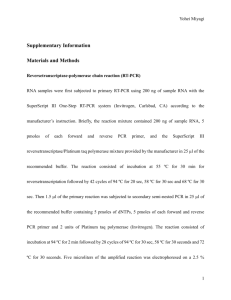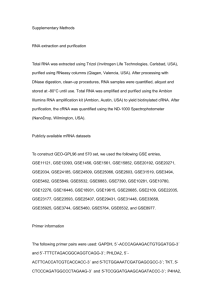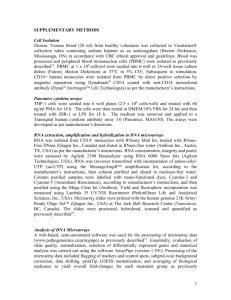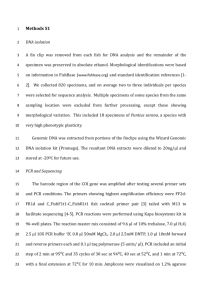Tissue and RNA samples and quantitative Real-Time RT-PCR
advertisement
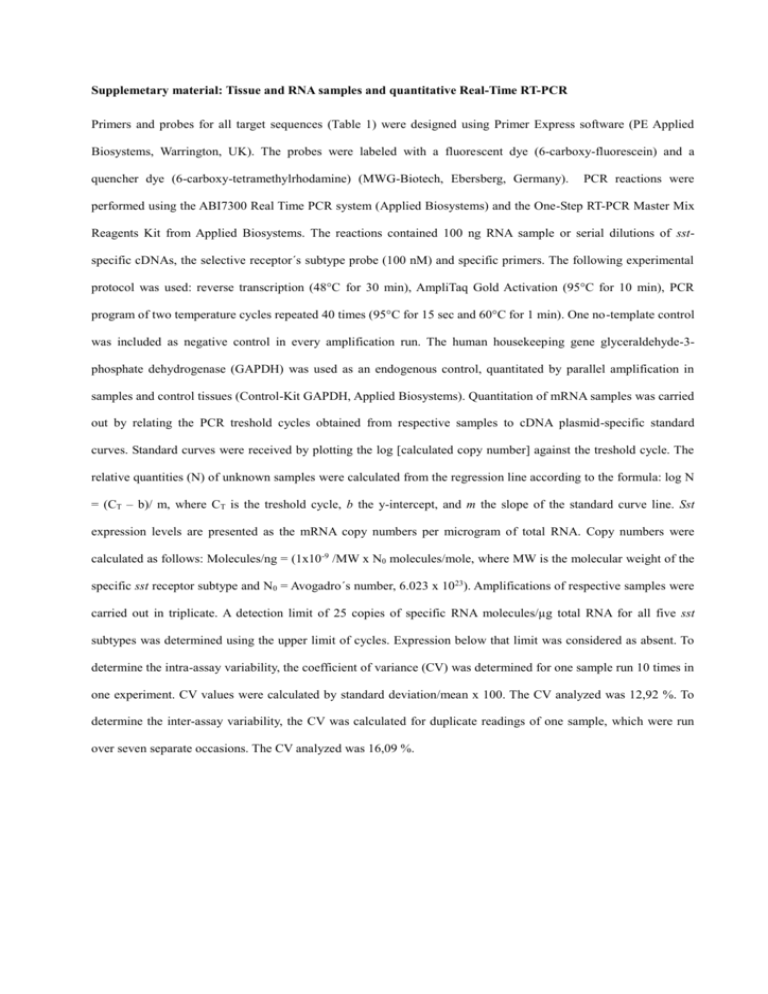
Supplemetary material: Tissue and RNA samples and quantitative Real-Time RT-PCR Primers and probes for all target sequences (Table 1) were designed using Primer Express software (PE Applied Biosystems, Warrington, UK). The probes were labeled with a fluorescent dye (6-carboxy-fluorescein) and a quencher dye (6-carboxy-tetramethylrhodamine) (MWG-Biotech, Ebersberg, Germany). PCR reactions were performed using the ABI7300 Real Time PCR system (Applied Biosystems) and the One-Step RT-PCR Master Mix Reagents Kit from Applied Biosystems. The reactions contained 100 ng RNA sample or serial dilutions of sstspecific cDNAs, the selective receptor´s subtype probe (100 nM) and specific primers. The following experimental protocol was used: reverse transcription (48°C for 30 min), AmpliTaq Gold Activation (95°C for 10 min), PCR program of two temperature cycles repeated 40 times (95°C for 15 sec and 60°C for 1 min). One no-template control was included as negative control in every amplification run. The human housekeeping gene glyceraldehyde-3phosphate dehydrogenase (GAPDH) was used as an endogenous control, quantitated by parallel amplification in samples and control tissues (Control-Kit GAPDH, Applied Biosystems). Quantitation of mRNA samples was carried out by relating the PCR treshold cycles obtained from respective samples to cDNA plasmid-specific standard curves. Standard curves were received by plotting the log [calculated copy number] against the treshold cycle. The relative quantities (N) of unknown samples were calculated from the regression line according to the formula: log N = (CT – b)/ m, where CT is the treshold cycle, b the y-intercept, and m the slope of the standard curve line. Sst expression levels are presented as the mRNA copy numbers per microgram of total RNA. Copy numbers were calculated as follows: Molecules/ng = (1x10-9 /MW x N0 molecules/mole, where MW is the molecular weight of the specific sst receptor subtype and N0 = Avogadro´s number, 6.023 x 1023). Amplifications of respective samples were carried out in triplicate. A detection limit of 25 copies of specific RNA molecules/µg total RNA for all five sst subtypes was determined using the upper limit of cycles. Expression below that limit was considered as absent. To determine the intra-assay variability, the coefficient of variance (CV) was determined for one sample run 10 times in one experiment. CV values were calculated by standard deviation/mean x 100. The CV analyzed was 12,92 %. To determine the inter-assay variability, the CV was calculated for duplicate readings of one sample, which were run over seven separate occasions. The CV analyzed was 16,09 %.
